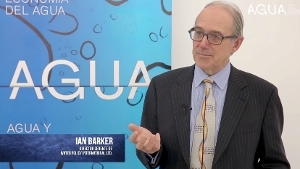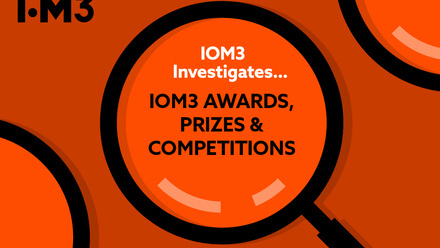Get talking – To save the planet, we must understand it
Professor Ian Barker, President of the UK’s Earth Science Teachers’ Association, issues a rallying call to prevent the extinction of Geology in our education system.

The cost of failure is an unpopular concept – no-one likes to think that a project might fail, or what the costs of failure might be. When we are trying to find a safe repository for nuclear waste, or develop secure sources of geothermal energy, or ensure that major construction projects don’t collapse, we need Earth Science expertise to reduce the risk of failure.
The cost of not having that input can wreck the project, and damage lives, livelihoods and the environment. More positively, geological expertise is crucial to finding the lithium for battery technology, groundwater to supply growing cities and aggregates to construct the shovel-ready infrastructure the government wants to see delivered.
Given that so much of our economy relies ultimately on our ability to exploit the Earth’s resources in a sustainable way, we might expect to see Geology valued within the education system. In the 1980s, that was the case, with nearly 4,000 A-level entries and more than 8,000 GCSE students studying Geology. By 2019, those numbers had plummeted to about 1,400 A-level candidates and fewer than 500 at GCSE. Many schools and colleges no longer teach Geology, and the viability of those courses that remain is in jeopardy. There is a similar story in higher education, where enrolments into Geoscience degrees have declined from 1,800 in 2014-15 to 1,100 in 2018-19.
Whereas once there were six institutions training Geology teachers, today there are none. A-level funding has been reduced, and now only supports a three A-level system. Meanwhile, Geology at GCSE level is less favoured since it is not seen as part of the science ‘bucket’, and so plays a minor role in school league tables. This has reduced the ambition within schools and colleges to offer ‘minority subjects’. These changes have brought Geology to a cliff edge – students are less likely to be offered a Geology GCSE, they are unable to take a fourth subject at AS level, and so fewer are studying it at A-level.
The situation in higher education compounds these problems. Geology was once placed in Physical Sciences, alongside Forensics and Materials Science, but is frequently now placed with Geography and Environmental Science where it is less likely to receive STEM recognition, or government funding.
Employers say they are finding it increasingly difficult to recruit staff with Earth Science expertise. The government shortage occupation list includes eight Earth Science professions. And although physicists and chemists can find niche roles in the Earth Sciences, they, and others who don’t have a grounding in basic geological principles, will have missed out on the unique skill set which studying Geology brings. What do I mean by that?
Geologists are trained to think in four dimensions – to understand the complex structure of the Earth and its evolution over time, and to use that long view to recognise that nothing is forever. They are trained to develop conceptual models with partial datasets – there is never a full picture of what is going on underground, so the ability to conceptualise the flow of groundwater or the configuration of an ore body is essential. They learn self-reliance, adaptability and project management from the fieldwork which is an integral part of studying Geology. And they learn that we only have one planet, with finite resources, and that humanity is a transient species, but one which is likely to have a long-term impact in the geological record.
The decline in Geology at schools and universities is not yet terminal, but extinction may not be far off. The first hurdle is to achieve wider recognition that there is a problem, and to understand what the consequences and costs of inaction might be to UK plc. The downgraded place of Geology within education policy will remain unless there is a compelling case for change. At present, those who are aware of the problem are largely talking to each other, and although the evidence base for the decline in numbers is very strong, the consequences have not yet been widely articulated.
The Earth Science Teachers’ Association, of which I have the honour to be current President, has for over 50 years worked to enthuse and support those involved in Earth Science education, bringing together all levels from primary to higher. It offers training in Geology teaching to practising for newly qualified teachers of science or geography at an intensive Summer School Masters-level course at Keele University. This is free of charge to participants thanks to industrial bursaries – £1,800 will train one teacher who can then go on to teach and inspire hundreds of students. Eight Geology teachers have been trained each year for the past four years, but there is no reliable source of funding.
The Keele course is a valuable life-raft. But it would be much better if we could keep the ship afloat. Evidence about what the implications of a skills shortage would mean to the wide range of industries that rely on Earth Science expertise would help to make a case for Earth Science education to be recognised as essential to the UK economy and environment. Greater financial and in-kind support to the volunteer-run bodies who are active in promoting Geology would help to make a difference to what they can do – with industry – to raise the profile of the subject across all age ranges.
Ultimately, however, the solution lies with government – lobbying the Department for Business, Energy & Industrial Strategy with compelling evidence of the costs of inaction and providing the Department for Education with policy recommendations. Are IOM3 members willing to help?







